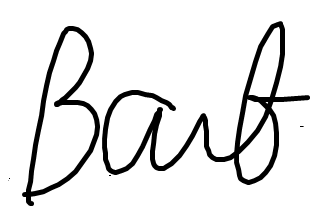|

Hi Barb,
The other day, I attended a Minnesota Orchestra concert which featured trumpet player Pacho Flores. (His first piece starts at about the 47:30 minute mark, when he playfully hands the conductor his missing baton.)
Musicians like Pacho Flores make doing what they do look easy. They prepare for performances by practicing a lot.
And those of us who lead meetings prepare, too. We plan our agendas. We choose activities to deliver desired outcomes. We gather our tools. We think about what could go wrong and how to help the group stay on track. We try to get enough sleep, eat well and get centered. And so on.
We can also prepare ourselves by practicing facilitation skills and creating solid habits. Check out the Pro-Tip section below for three skills you can practice well in advance of your meetings, to make doing what you do look easy. And the Resources section for an easier way to adopt new habits.
Practice makes better!
Warmly,

Barb Bickford
Tiny Habits Course
Behaviorial scientist BJ Fogg has cracked the code on creating new habits. Recently, I joined his free 5 day program to start new habits. It was fun, and I did actually create a new habit! Check it out. His book is great too. (I don't get anything out of promoting this -- I just am thrilled to find a manageable way to create new habits.)
Better Communication for more Effective Healthcare
Learn simple effective concepts that help you before and during any conversation-- whether with patients, people you report to and supervise and your peers. If you work in healthcare or are affiliated with healthcare, this course is for you! It starts in June, so you have time to clear your schedule. Learn more and register here.
Transitions and New Beginnings retreat Two spots left -- registration ends April 1!
Are you going through a personal transition? Perhaps you are facing retirement, a loss, a new job or role, a change in a relationship or a health challenge. How might you go through this transition with ease and intention?
You can start by giving yourself the gift of rest and restoration on the weekend of April 5-7, 2024. We'll explore your transition by using conversation, painting (no skill required!), gentle movement and more. Learn more here OR go directly to the registration page. Sign up now!
Recent blog posts
-- How Conversations Smooth Transitions
-- Brush up your meeting preparation
Our current workshops and courses
Three tips for preparing for meetings
If you want to have better meetings and even better conversations, you can practice facilitation skills in your everyday life so they become automatic.
Here are three skills (three tips) to try:
1. Notice your physical and emotional state. An easy way to do this is to consider the colors of a traffic signal. Are you in a red state (stressed and needing to stop and dosomething now), a yellow state (forewarned that you will be needing something soon) or a green state (good to go)? In life, being aware of your state helps you to stop sooner and support yourself. In meetings, being aware of your state can help check your knee-jerk reactions that are more about you than about the group.
2. Notice your assumptions We all have assumptions about groups and about particular people in them. We may assume we know why they do what they do, or what they will do next. Our assumptions can influence a meeting more than we think! Take time to notice your assumptions, and question them, before the meeting.
3. Practice facilitation skills What is a facilitation skill you want to master? Perhaps you want to become a visual facilitator. You can visual facilitation skills by doodling. Or you may want to hold space for new things to emerge; you can practice the attitude of being curious. Or you want to learn how to gracefully intevene on behaviors that hold a group back. You can practice using intervention skills (whether in real life or just in your mind), when observing situations that need to be interrupted.
Example:
Lately, I've been focused on asking better, more open-ended questions. Here are some examples of questions I'm currently practicing with my family and friends, because I want to be able to use them fluently when meetings are challenging:
-- When I notice people using terms that could mean different things to different people, I practice asking "what kind of ___ is that?"
-- When I hear "either X or Y" thinking, I practice asking "how might we have both X and Y?"
-- When I notice people complaining, I practice asking "What would you like to have happen instead?"
Per the tiny habits method, when I do a tiny habit, I celebrate it in some small way. Tiny celebrations are a great skill to practice too!
What skills could you practice before meetings to prepare yourself for leading? Consider using the Tiny Habits method to make them habitual (see Resources, above).
Want even more tips? Access Ten Tips to Foster Online Engagement.
If you were forwarded this email and want to subscribe click here
|